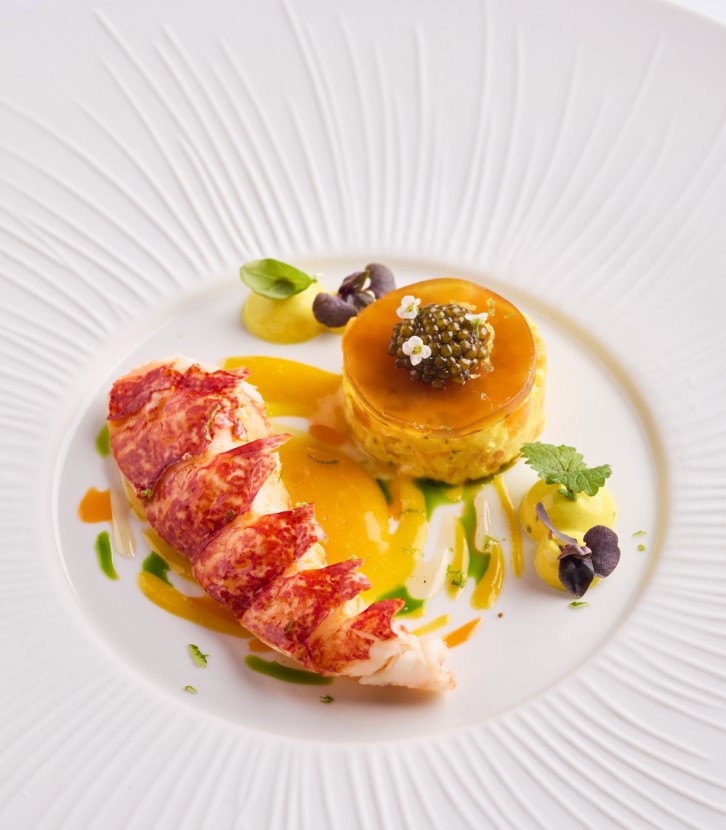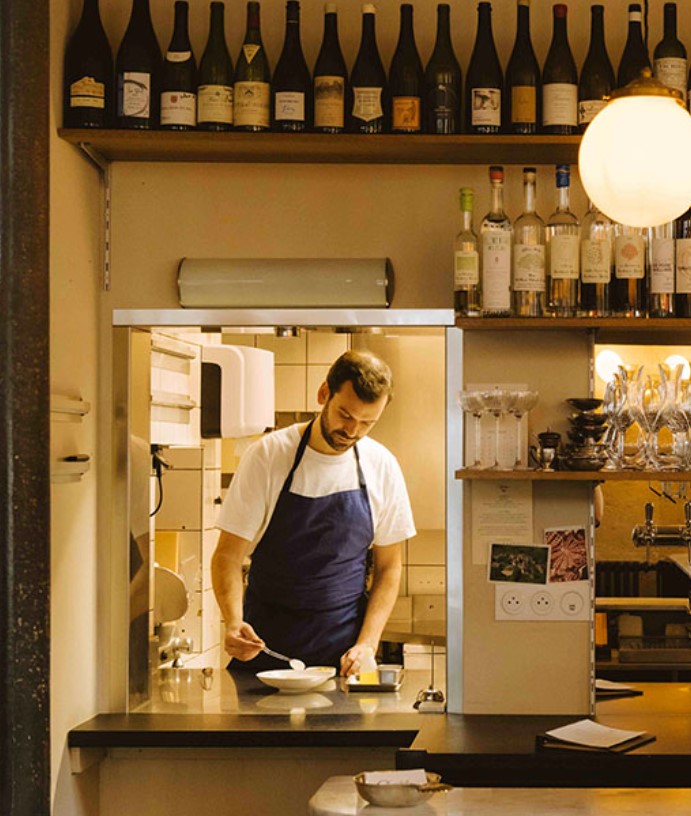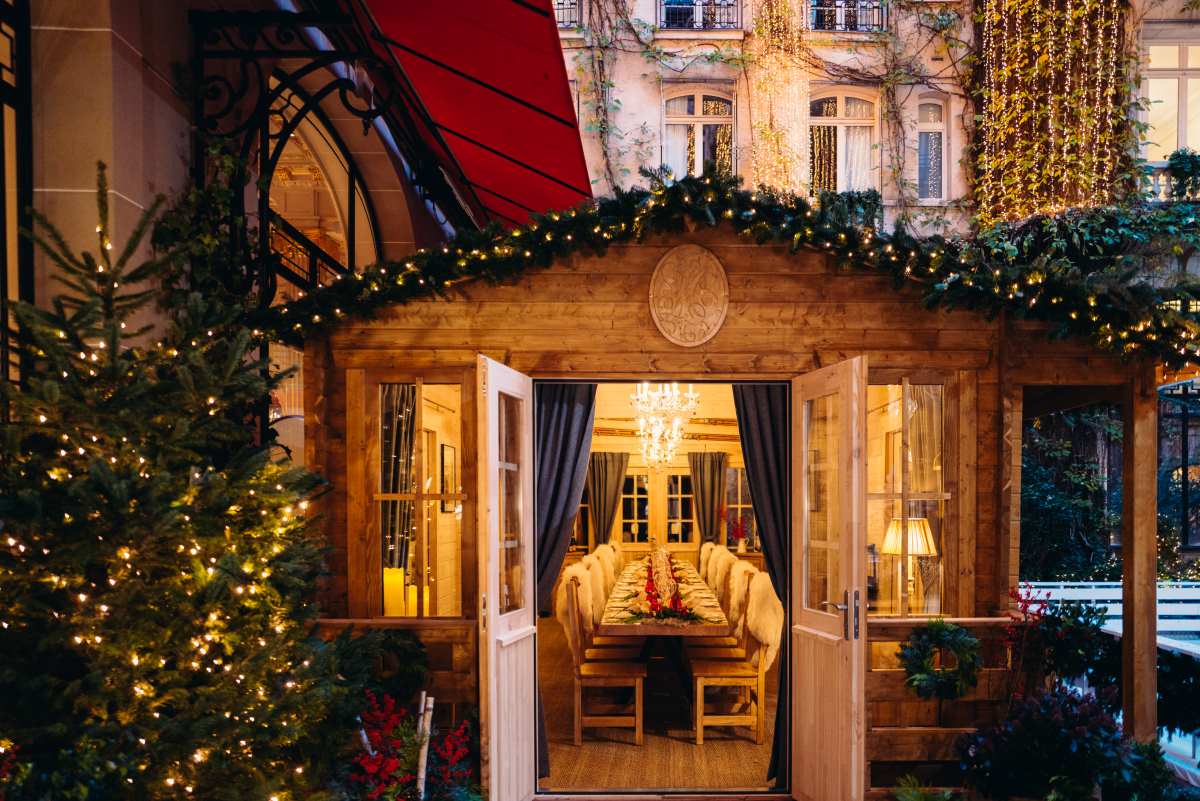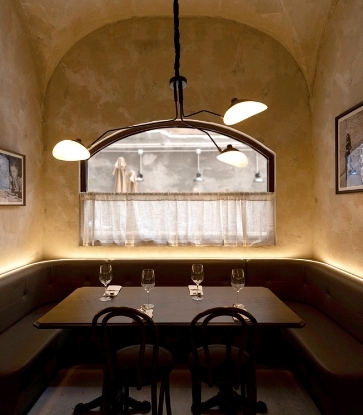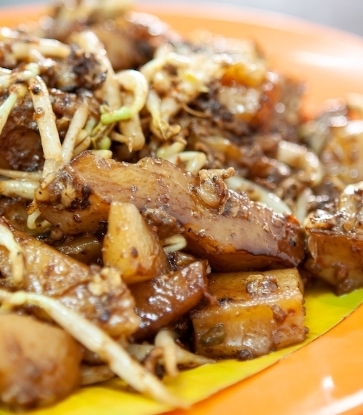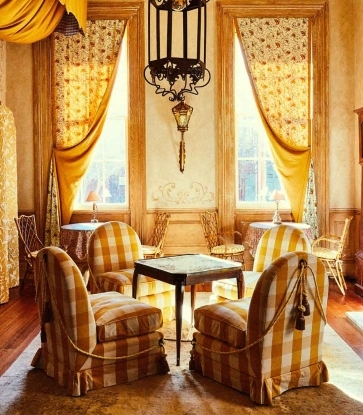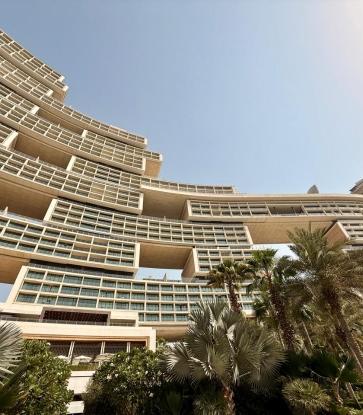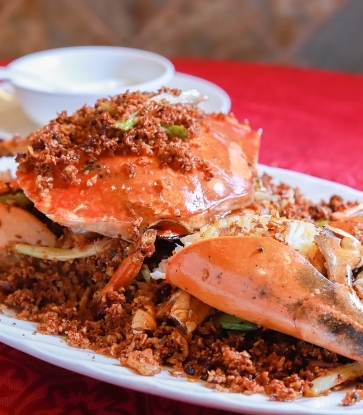The Mass Transit Railway (MTR) acts like the blood vessels of Hong Kong, linking up all its districts. Day in and day out, countless gastronomes rely on its efficient service to get around the city, in search of the excellent delicacies selected by MICHELIN Guide.
Along the Island Line, for instance, there is a high concentration of amazing eateries waiting to be discovered.

Sai Ying Pun Station, at the western side of Hong Kong Island, is a good starting point for your epicurean journey.
The hilly and quaint neighbourhood is a magnet for those seeking a taste of old Hong Kong. The arrival of the MTR in the vicinity has brought a jolt of energy — and along with it, an influx of fancier new restaurants — long-running favourites that serve up tried and true morsels as they always do. The crispy grains and sizzling stir-fries from Kwan Kee Clay Pot Rice (Queen’s Road West), the lesser known dishes from Xinjiang by Ba Yi, and the lai fan (noodles made with rice and tapioca flour) with roasted goose leg from 40-year-old Po Kee, have been the sources of gustatory pleasure to the residents and university students nearby.
RELATED: Best Char Siu in Hong Kong

A station to the east, Sheung Wan is a business area that also knows what it means to slow down. Southeast Asian joints can easily be found there and are thus frequented by nine-to-fivers, with the kuai tiao ruea (Thai boat noodles) of Samsen (Sheung Wan) and An Choi’s Vietnamese dishes making the strongest waves.
Up next is Central, the hub of commercial activities and MICHELIN-recommended restaurants. It is home to three-starred restaurants Ta Vie and Caprice, widely regarded to be the pinnacle of French cooking. Two-starred restaurant Lung King Heen and Ying Jee Club shine with their Cantonese classics. Roast goose-loving gourmands are often spotted lining up outside 1-star Yat Lok (Central). Not to be missed are street food sensations like Kau Kee, the curry beef brisket specialist with 30 years of experience, which rubs shoulders with the aforementioned culinary giants.

Satisfying meals aside, the Central and Western Districts are also teeming with hotels of all scales and styles. The next time you visit Hong Kong, stay there and stop by all the MTR stations at the western end of the Island Line to indulge your taste buds.
Sai Ying Pun Station
Eng Kee Noodle Shop
It is not an overstatement to say homemade char siu (roasted pork) is what lets Eng Kee Noodle Shop stand tall after over seven decades. Most local noodle joints take on a small selection of food items like wonton and beef brisket. If char siu is served, it is likely roasted elsewhere. Eng Kee’s homey rendition, lean without the usual burnt ends, is one of the few prepared in-house and can thus be seen on every dining table. Besides, its braised beef brisket and ngau zap (assorted beef entrails) are complementary to the sweet dried flounder broth and the springy thin Cantonese noodles. Don’t miss the deep-fried fish skin and wontons. Freshly made at 6 a.m. every day, they have varying mouthfeels when enjoyed plain or after a quick dunk in the broth.
Tak Kee
Having been in the business for more than 30 years, Chiu Chau restaurant Tak Kee is now in the hands of the second-generation owners. Its distinctive daa laang offerings include chilled fish, chilled crab, and deep-fried grenadier anchovy, all prepared with daily catches. Poached meat in master stock is another Chiu Chau tradition. Tak Kee’s ever-simmering master stock is the winning secret behind its tender, flavourful sliced goose. Equally tantalising are the home-style dishes such as omelette with icefish, head mustard, and Yunnan ham pot as well as Szechuan chilli chicken.
Sheung Wan Station
Ăn Chơi
Bib Gourmand restaurant Ăn Chơi was founded last year by a married couple — Lewis, the chef, and Kay, the visual experience designer. It focuses on causal Vietnamese fare including banh mi with homemade baguette and heaps of fillings. Further to that, Ăn Chơi features noodle soups from different regions of Vietnam alternately, among those being Hue-style pho, bun mam (fermented fish noodle soup) with lemongrass and pineapple, and Saigon-style cassava noodle soup with crabmeat. The latter, developed in-house, is famous for the umami-rich broth with emperor chicken bones, dried shrimps, tomatoes, and onions simmered together for 12 hours.
Hotel Recommendations
A mesmerizing blend of age-old Chinese architecture, modern conveniences, and thriving businesses, staying in Sheung Wan allows travellers to roam around the narrow streets, discover the rich culture of the city, and reach Central or Kennedy Town on foot. A handful of hotels in the area like 99 Bonham, One96, and The Jervois are in the official selection of MICHELIN Guide Hotels.The Jervois
The Jervois is located on Jervois Street, a busy thoroughfare populated by restaurants and swathes of people on the move. Yet, the overall vibe of the area remains rather relaxed. The hotel excels in creating a sense of comfort through dark-hued timber, leather, and marble. The rooms are installed with floor-to-ceiling glass windows to take full advantage of Hong Kong’s magnificent cityscape.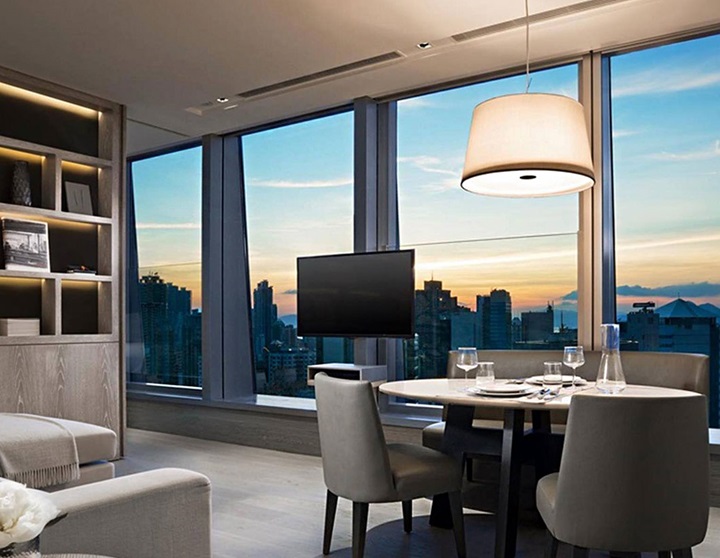
One96
The hotel has a whole floor of one-bedroom suites. The modern interior is not only spacious and comfortable, but also full of natural light. Right behind it is the trendy NoHo area, in which one can lose themselves among the historical buildings, creative ateliers, and elegant bistros.RELATED: Here's Why You Should Book Hotels with the MICHELIN Guide

Central Station
Sing Kee
A popular meeting spot for celebrities, Sing Kee has cooked up iconic Hong Kong delicacies in Central for almost a decade. Veteran chef Sing Gor has garnered the favour of discerning diners through the salt and pepper squid, pan-fried kuruma shrimp with first draw soy sauce, sweet and sour pork with fresh pineapple, traditional steamed chicken in fresh lotus leaf, and his signature lo foh tong (slow-cooked soups) featuring a long list of ingredients.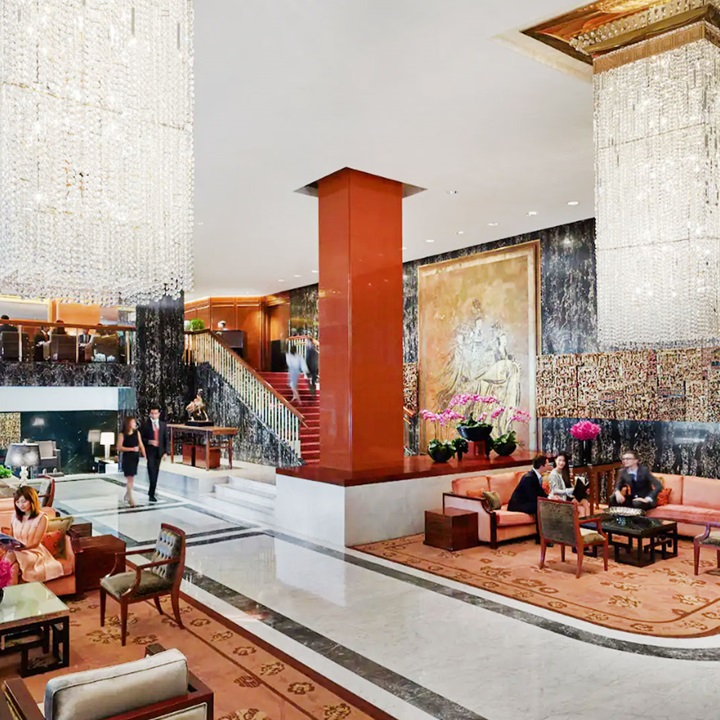
Hotel Recommendations
From headquarters of international corporations to museums; and from theatres to art galleries, Central’s charm is manifested in many different ways, which makes it an ideal place for travellers to stay at regardless of their reason for travel. Mandarin Oriental Hong Kong, Four Seasons Hotel Hong Kong, and The Landmark Mandarin Oriental are some of the deluxe hotels there that are featured in MICHELIN Guide.
Mandarin Oriental Hong Kong
The recent 60th anniversary celebrations proved that Mandarin Oriental Hong Kong is truly a local institution. Occupying the core position of Central, it is admired for its expressions of eastern aesthetics. Most of the rooms are vast and capture the dynamic vistas of the surroundings. Of course, incredible service is another key factor behind its tremendous reputation among local and international connoisseurs.Hero image: Shutterstock
The article is written by Gloria Chung and translated by Vincent Leung. Read the original article here.





